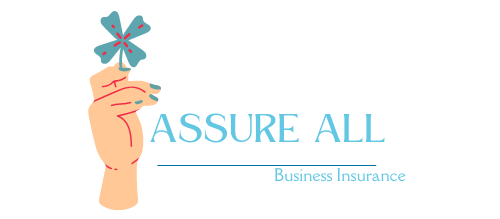Commercial Insurance That’s Right For Your Business
Every business needs commercial or business insurance to protect business assets. Business owners normally face several risks, which if not managed can lead to business failure. Lawsuits from disgruntled employees, customers, and suppliers, property loss and damage resulting from disasters, vandalism, and other risks. Smart Business commercial insurance can provide business owners with sufficient coverage for all the risks and liabilities they’re concerned with. Whichever type of business you’re running, you must purchase a commercial insurance policy that covers the following risks:
Property Damage
The ideal business insurance should protect your business against losses caused by fire damage, vandalism, natural disasters, and robberies. In case your business assets get damaged or lost, the insurance company will compensate you for your losses. This will help to ensure you do not spend your precious savings or take out a loan to pay for renovations, repairs, or replacement of items you lost. The ideal policy should cover furniture and fittings, inventory, electrical appliances, plant and equipment, and any other type of business asset that may be found on the business premise.
Lawsuits
When someone files a lawsuit against your business, you may find yourself spending a lot of money defending yourself against the claims. If you lose the case, the court may award tens or hundreds of thousands of dollars as compensation to the complainant. Most businesses are not able to pay the cost of lawsuits. Many businesses have previously had to file for bankruptcy to protect business assets. The beauty of having commercial insurance with public liability or general liability coverage is that the policy will pay all the legal fees incurred while fighting the suit. The legal fees will be paid whether or not you win the case. Secondly, the compensation awarded by the court will be settled by the insurance company.
Business Income Protection
The income of a business may not always be constant. At times, economic downturns, disruption in the industry, and geopolitical issues can change the fortunes of a business. Since the business has bills to pay, loan obligations, tax obligations, and other types of expenses to pay, the income should be protected. The ideal commercial insurance policy should offer business income protection. In case the business encounters headwinds and income reduce, the insurance company will compensate the business owner for the reduced income.
Auto Crashes
Business owners with commercial vehicles must have their commercial vehicles insured. This is because a vehicle may get into a crash. The crash may have serious consequences as the goods the vehicle carries will either be lost or get damaged. Commercial vehicle insurance will protect your business from losses caused by auto crashes involving commercial trucks and vans.
While business owners have the option of purchasing individual insurance policies to cover all these risks, buying a bundled commercial insurance policy is recommended for several reasons. For starters, a bundled policy is much cheaper than buying individual policies. Secondly, it is much easier to manage a single policy than to manage multiple policies. When looking for a suitable policy to purchase, be sure to consider the following factors:
- Liabilities Covered
Be sure to read the inclusion clauses of a policy to find out exactly what it covers. This is because you do not want to have any misunderstandings. If you expect a policy to cover business income against economic downturns or disruption in the industry, make sure this is stated in the inclusion clauses. Be sure to also check the exclusion clauses to find out what your policy does not cover.
- Coverage Limits
The maximum coverage limits of different policies must be checked. This is because you want a policy with the greatest liability coverage limits. If you’re looking at the business property cover, be sure to do a valuation of your business assets and purchase a policy with a coverage limit greater than what your assets are worth.
- Premiums
Be sure to compare the premiums charged by different insurance companies for the type of policy you want. This will help you choose the most affordable policy.

